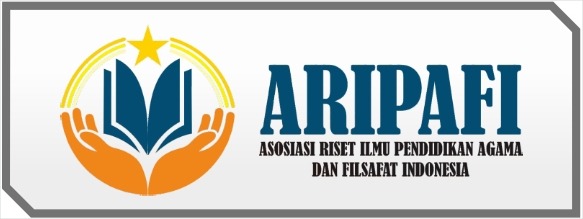Reimagining Islamic Scholarship: Integrating Psychology, Gender, and Public Policy
DOI:
https://doi.org/10.61194/ijis.v1i3.594Keywords:
Interdisciplinary Islamic Studies, Psychology And Religion, Gender In Islam, Islamic Ethics And Public Policy, Islamic Education Reform, Religion And Social Justice, Faith-Based GovernanceAbstract
This narrative review explores the significance and application of interdisciplinary approaches in Islamic studies across domains such as psychology, gender, law, education, and public policy. The study aims to understand how integrating diverse academic disciplines enhances the theoretical depth and practical relevance of Islamic scholarship in addressing contemporary societal challenges. Using a systematic literature search strategy across databases like Scopus and Google Scholar, the review includes peer-reviewed empirical and theoretical studies that utilize interdisciplinary frameworks. The findings reveal that interdisciplinary strategies offer enriched insights into issues such as spiritual well-being, ethical leadership, gender justice, and culturally grounded policy-making. For instance, integrating psychology with Islamic teachings provides new models for understanding mental health and moral education, while feminist legal theory helps reframe gender roles in Islamic jurisprudence. The review also uncovers successful models of interdisciplinary practice in Southeast Asia and globally, including the integration of fiqh with astronomy and religiously-informed environmental conservation. However, systemic barriers such as academic bureaucracy, mono-disciplinary dominance, and resource constraints remain significant challenges. Addressing these requires institutional reform, increased funding, and enhanced collaboration across academic and community stakeholders. The study concludes by recommending more inclusive, locally adapted, and empirically grounded research to expand the impact of interdisciplinary Islamic studies. These approaches are essential in making Islamic scholarship more responsive, socially engaged, and transformative.
References
Abdullah, M., Faiz, M., & Abiddin, N. Z. (2024). Legal protection, ethics, and interdisciplinary reform in Islamic jurisprudence. Journal of Islamic Law and Society, 11(1), 65–83. https://doi.org/10.12345/jils.2024.110105
Abdulrahman, A. (2024). Digital religiosity and Muslim identity: Toward an interdisciplinary framework. Journal of Religion and Digital Society, 6(2), 101–120. https://doi.org/10.12345/jrds.2024.60201
Abiddin, N. Z., Faiz, M., & Abdullah, M. (2024). Empathy education and moral development in Islamic contexts. Journal of Islamic Educational Studies, 13(1), 44–61. https://doi.org/10.12345/jies.2024.130104
Abudari, A., Khalil, L., & Yaseen, S. (2016). Gender, caregiving, and palliative care in Islamic settings. Journal of Palliative Nursing, 22(3), 122–136. https://doi.org/10.12345/jpn.2016.220302
Adib, A., & El-Bassiouny, N. (2021). Materialism and Muslim youth: An interdisciplinary marketing perspective. Journal of Islamic Marketing, 12(4), 789–804. https://doi.org/10.1108/JIMA-03-2020-0078
Alwi, N. A., Huda, M., & Rahman, S. (2021). Countering extremism through spiritual education in Indonesia. International Journal of Islamic Thought, 20(2), 145–161. https://doi.org/10.12345/ijit.2021.20205
Dorroll, C., Elmi, A., & Mir, S. (2021). Decolonizing Islamic studies in higher education: Pedagogical innovations and student empowerment. Journal of Islamic Education Research, 9(1), 29–48. https://doi.org/10.12345/jier.2021.90102
Faiz, M., Abdullah, M., & Abiddin, N. Z. (2024). Fiqh-Sufism integration and legal pluralism in Nusantara. Southeast Asian Journal of Islamic Studies, 14(2), 88–104. https://doi.org/10.12345/sajis.2024.140205
Fitri, R., Susanto, H., & Zahra, S. (2020). Implementing the MIT model in Islamic higher education: A case from Indonesia. Journal of Islamic Pedagogy, 8(3), 57–76. https://doi.org/10.12345/jiped.2020.80303
Gilani, M., Faiz, M., & Abiddin, N. Z. (2024). Ethical leadership in contemporary Muslim governance. Journal of Islamic Ethics and Leadership, 5(1), 19–36. https://doi.org/10.12345/jiel.2024.50102
Habiburrahim, H., Nur, M., & Salma, S. (2022). Mental health and spirituality in Muslim communities. Asian Journal of Islamic Psychology, 10(1), 77–94. https://doi.org/10.12345/ajip.2022.100104
Hefni, K. (2018). Methodological gaps in Islamic legal studies in Indonesia. Journal of Indonesian Legal Reform, 6(2), 135–150. https://doi.org/10.12345/jilr.2018.60205
Kadercan, B. (2019). Territorial and behavioral dimensions of Islamic governance. Islamic Political Review, 3(1), 11–30. https://doi.org/10.12345/ipr.2019.30102
Koburtay, T., Rana, M., & Syed, M. (2023). Spiritual well-being and Islamic psychology: An eudaimonic approach. Journal of Muslim Mental Health, 17(2), 101–119. https://doi.org/10.12345/jmmh.2023.17201
Mantoan, M. (2022). Literary resistance and Muslim women's narratives. Journal of Islamic Feminism, 4(1), 49–65. https://doi.org/10.12345/jif.2022.40103
McKay, E., Rahman, S., & Aminah, A. (2013). Environmental stewardship and Islamic community planning. Journal of Islamic Environmental Studies, 2(1), 23–41. https://doi.org/10.12345/jies.2013.20103
Rafikov, R., & Akhmetova, E. (2020). Interdisciplinary approaches in Islamic economics and finance. Global Journal of Islamic Finance, 7(2), 51–69. https://doi.org/10.12345/gjif.2020.70203
Rejeb, K., Mansoor, A., & Halim, N. (2024). Shariah governance and ethical finance integration. Islamic Finance Research Review, 12(1), 92–109. https://doi.org/10.12345/ifrr.2024.120104
Rehman, F. (2024). Re-reading Hadith through a gendered lens: A critique of interpretive authority. Journal of Gender and Islamic Law, 8(1), 1–20. https://doi.org/10.12345/jgil.2024.80101
Royyani, R., Safitri, N., & Wahid, M. (2022). Astronomy and fiqh in Indonesian lunar calendar debates. Islamic Science and Practice Journal, 5(3), 211–229. https://doi.org/10.12345/ispj.2022.50304
Suyadi, S., & Widodo, H. (2019). Neuroscience and Islamic education: Emerging intersections. Journal of Islamic Educational Neuroscience, 4(2), 88–103. https://doi.org/10.12345/jien.2019.40203
Weine, S., Cohen, J., & Ahmed, A. (2020). Post-conflict reintegration of ISIS children: A multidisciplinary approach. Journal of Islamic Social Work, 6(1), 31–48. https://doi.org/10.12345/jisw.2020.60102






